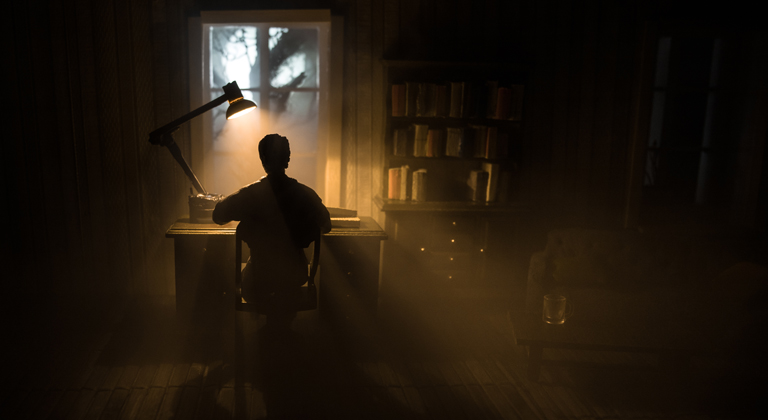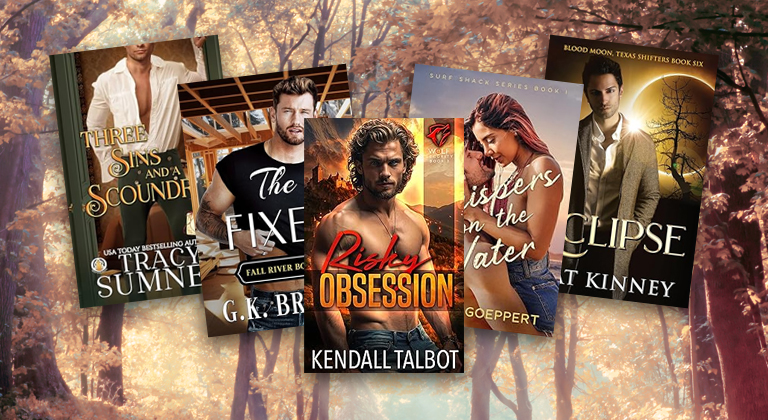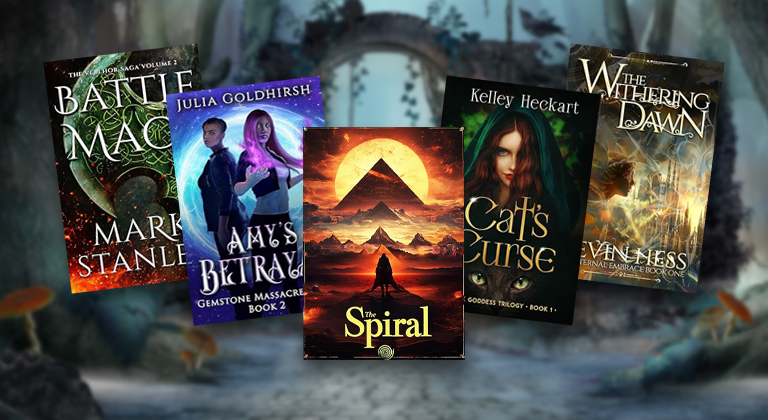What can Stephen King teach us about writing?
Many authors have probably already read Stephen King’s own words about writing from his book on the subject, but that doesn’t mean you’re done learning from him. King is a very prolific writer, and although he’s known for his horror, he’s actually written in a number of genres over the years. You can never know too much about any of the writing greats, and as Ginger points out, there are still things we can learn from King outside of what he put into his book on writing. There are common elements in his stories that draw readers in and make his novels so engaging, and those are the things that really deserve our attention.
Recently, somebody mentioned to me that they enjoyed our blog series on what famous writers can teach us about the craft of storytelling. We’ve covered Agatha Christie, F. Scott Fitzgerald, Lee Child, Taika Waititi, and Ian Fleming so far, and there are plenty more to come!
One requested author to cover was Stephen King – which seemed like such an obvious choice that I had to scroll through our previous blogs and make sure we hadn’t covered him before! After all, Stephen King is one of the most influential and respected writers of our time; and he’s already taught many of us a thing or two about writing thanks to his highly lauded book On Writing (which is essential on any author’s bookshelf, if you ask me.)
Funnily enough, however, we actually hadn’t blogged about the master craftsman before now – so it’s time to correct that mistake! However, I didn’t want to rehash what many authors might have already learned about writing from King’s book. Instead, I wanted to talk about the elements that make King’s writing so engaging, but which he’s never written about introspectively before – the things that we love about his work, but he probably takes for granted as part of his writing process. For example:
People are the real monsters…
Without a shadow of a doubt, the most horrific part of Stephen King’s horror stories are people. Even in his iconic novel It, it’s the human characters who end up being far more terrifying than Pennywise the Dancing Clown. There’s Beverly’s sexually abusive father, and Eddie’s manipulative mother – not to mention Bowers, who is driven to murder by his father’s bullying. The horrors The Losers Club discover in Pennywise’s underground lair pale in comparison to the true horrors each of the kids have to face at home.
It’s these elements that truly make King’s works so bone-chilling. Monsters, ghosts, and ghouls don’t scare us nearly as much as the far-less imaginary and far-more dangerous people we encounter on our path through life.
By creating such vividly realistic, yet horrifyingly evil characters, King makes sure that his horror stories get under our skin and stay there. For writers looking to grab their own readers by the throat, unleashing the true existential horror of real people could be the way to achieve that.
Just a little too believable for comfort…
In the same vein as King’s horrifically realistic human characters are the disquietingly believable scenarios he paints around them. There’s something truly disturbing about how much of our own world we can see in Stephen King’s stories – and sometimes, the other way around!
For example, I really enjoyed King’s book From a Buick 8, which was all about an abandoned Buick a troop of Pennsylvania State Troopers discover in a gas station parking lot. As they investigate the car, they start to find all sorts of things wrong with it – like three of the distinctive Buick vents on the driver’s side of the car, but four on the passenger side – and realize that this isn’t actually a Buick Roadmaster. It’s just something designed to look like a Buick Roadmaster.
And wouldn’t you know it? One day I was idling at some traffic lights and saw an old 1970s car roll to a halt beside me – and I spotted similar weird things about it. For just a second – until I checked myself – I could almost believe that one of the Low Men in Yellow Coats who appear in multiple Stephen King stories could be behind the wheel of it.
Obviously, I was just being silly – but because of the twistedly believable nature of Stephen King’s books, there’s always this unsettling feeling like the things he writes about could be true. If you can find that line and tightrope walk it in your writing, you might awaken that same feeling in your readers.
It’s as if you were there…
When I first moved back to America in 2007, I brought with me a copy of Stephen King’s wonderful ghost story Bag of Bones, and it was amazing to read a book set in the beautiful Autumn of America’s northeast while, at the same time, seeing the same fall weather outside my new bedroom window.
That’s one of the other wonderful things Stephen King does with his stories – he drags you right into them by painting such a vividly realistic picture of the time and place in which his stories are set. From the accents and dialect of his characters, to the haunting way he describes the sights, sounds, and smells of each location, you can almost feel like you’re right there in the story; and that’s perhaps why they feel so unsettling.
Authors can learn a lot from King’s brilliant and immersive descriptions and prose. By capturing little real life details, he makes places and things seem real in a way few other authors do – and, once again, that’s why his stories are so unsettling.
Well, that’s just the way it happened…
Rightly or wrongly, one of the things Stephen King is most criticized for as a writer are the endings to his books. They even make a joke about that in the recent movie adaptation of It.
Part of the reason for this, however, is that King commits to his stories and characters. In On Writing he describes writing a story like digging up a fossil – gently uncovering it bone by bone and assembling it into what it was originally destined to be. The end result is what it is – and if somebody asks him “why did you write it this way?” King responds: “Because that’s how it happened.”
There’s something writers can learn from this to apply to their own stories: Don’t be afraid to write it the way you think it should happen. In this day and age, a lot of fans bicker and argue about how one plot twist “ruined” their favorite franchises for them – be it Star Wars or Game of Thrones – but at the end of the day it’s up to the author to decide what happens in their story and no writer should be afraid to make that commitment in their own work, even if a vocal minority might have thought it would be ‘better’ if it happened a different way.
What you write belongs to you – so tell your stories the way you think they should be told.
If all else fails, get weird with it…
In 2015, Stephen King was awarded a National Medal of Arts from the U.S. National Endowment for the Arts. President Obama himself placed it around his neck – cementing King’s place as one of the defining writers of our time.
However, it was just two decades earlier in which King had been ridiculed as a ‘shlockmeister’ by critics, and reviled for the graphic content of many of his stories. It seems so astonishing that a writer once criticized for the shocking and explicit material of his books is now revered as a national treasure.
However, that’s because only a fraction of the people who know of Stephen King today have actually read all of his books. Most of us know King because of the movie adaptations of his works – like It, The Shining, and The Shawshank Redemption. Disturbing as they might appear onscreen, they’re very much sanitized versions – so people aren’t generally aware of just how messed up King’s books can actually get (like the pre-teen orgy at the climax of It.)
For those who are aware of the dark elements of King’s books, it’s kind of like a covenant, however – a thrilling secret that ensures these books occupy a piece of your subconscious for the rest of your life.
Now, obviously, I’m not suggesting you mirror this to the same extent Stephen King did (the climax of It is viewed as wildly disturbing and unnecessary by many readers – especially in today’s society) but by adding your unashamed, unabashed weirdness to your books you can often strike a chord with readers that continues to strum long after they’ve finished your book.
In conclusion…
There’s a reason Stephen King continues to be held in such high estimation, and it’s no surprise that his books continue to sell in the thousands, and continue to get adapted for television and the screen.
In On Writing King certainly demonstrated his mastery of the craft of writing – but it’s the tips I mention above that I think elevate his 64 novels and 200 short stories from the status of ‘craft’ to that of ‘art.’
But do you agree with what I say? I’d love to hear from you. Let me know in the comments section below – and until then, keep trying to write at Stephen King’s prolific pace. That’s one more reason why he’s enjoyed success in this business.












I agree one hundred percent and then some. I’m a big SK fan, and I haven’t even read half of his work, LOL! I don’t even care for horror, for the most part. But I absolutely love his deft hand with dialogue and characterization. I’ve learned so much as a writer by analyzing his books. Coming of age themes, love, friendships, you name it. A great post confirming why he is such a master!